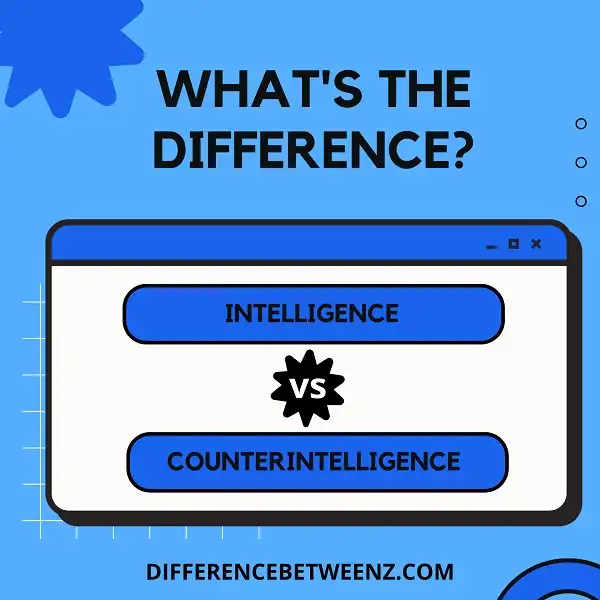When most people hear the term “intelligence,” they often think of spies and espionage. However, intelligence has a broader definition that includes all forms of information gathering. Counterintelligence is a specific field within intelligence that focuses on protecting an organization from espionage and other threats. While both intelligence and counterintelligence are important for national security, they are actually quite different concepts. This blog post will explore the differences between intelligence and counterintelligence.
What is Intelligence?
Intelligence gathering is the process of collecting information about an enemy or potential enemy. Intelligence agencies use a variety of methods to gather intelligence, including human intelligence, signals intelligence, and open-source intelligence. Intelligence agencies use this information to identify national security threats and develop countermeasures to protect their countries. Intelligence gathering is a critical component of national security and helps to keep countries safe from potential enemies.
What is Counterintelligence?
Counterintelligence refers to the activities undertaken by a government or other organization to prevent hostile acts by another government or organization. It is typically used in reference to national security, although it can also be applied to corporate espionage. Counterintelligence activities can include surveillance, sabotage, and propaganda. They may also involve measures to protect information and personnel, such as security clearance procedures and polygraph testing. The goal of counterintelligence is to thwart the plans of hostile governments or organizations and to obtain information about their activities and intentions.
Differences between Intelligence and Counterintelligence
- Intelligence and counterintelligence are two terms that are often used interchangeably, but there are actually a few key differences between the two. Intelligence refers to the gathering of information about an enemy or potential enemy, while counterintelligence is focused on thwarting the enemy’s efforts to gather information about you.
- In other words, intelligence is passive, while counterintelligence is active. Intelligence can be used for both military and civilian purposes, but counterintelligence is primarily a military tactic.
- Intelligence gathering can be done through a variety of means, including human intelligence, SIGINT, and IMINT. Counterintelligence, on the other hand, typically involves things like deception and disinformation. Ultimately, intelligence and counterintelligence are both important tools in the fight against the enemy.
Conclusion
Although intelligence and counterintelligence are similar in some ways, they have important distinctions. Intelligence-gathering activities focus on understanding the intentions of other countries and organizations, while counterintelligence’s goal is to protect a country or organization from these same threats. The two also use different methods- intelligence relies heavily on open sources such as published documents and interviews, while counterintelligence uses secret methods like wiretapping and infiltration. Despite these differences, the ultimate goal of both is to protect their nation or organization.


